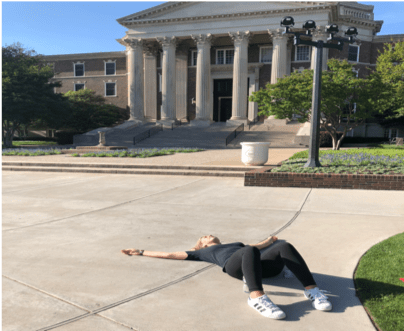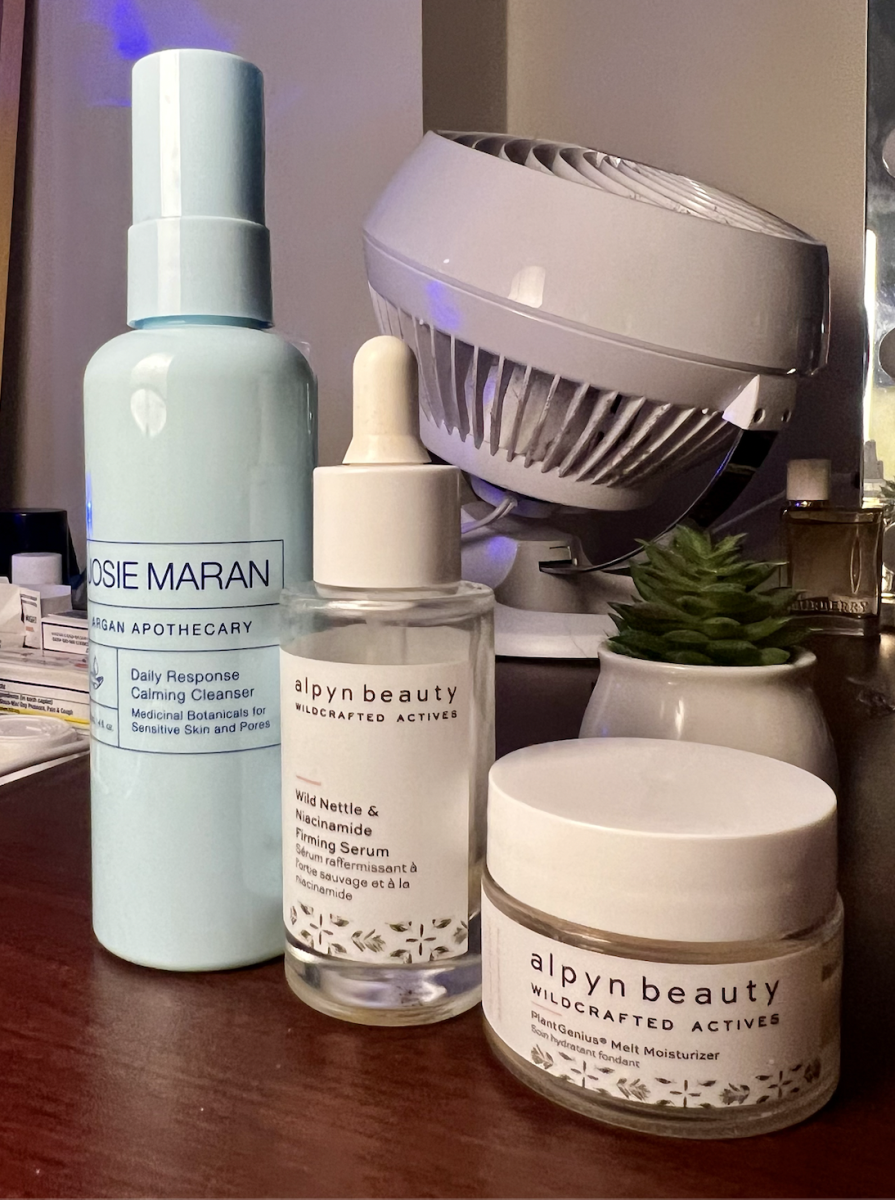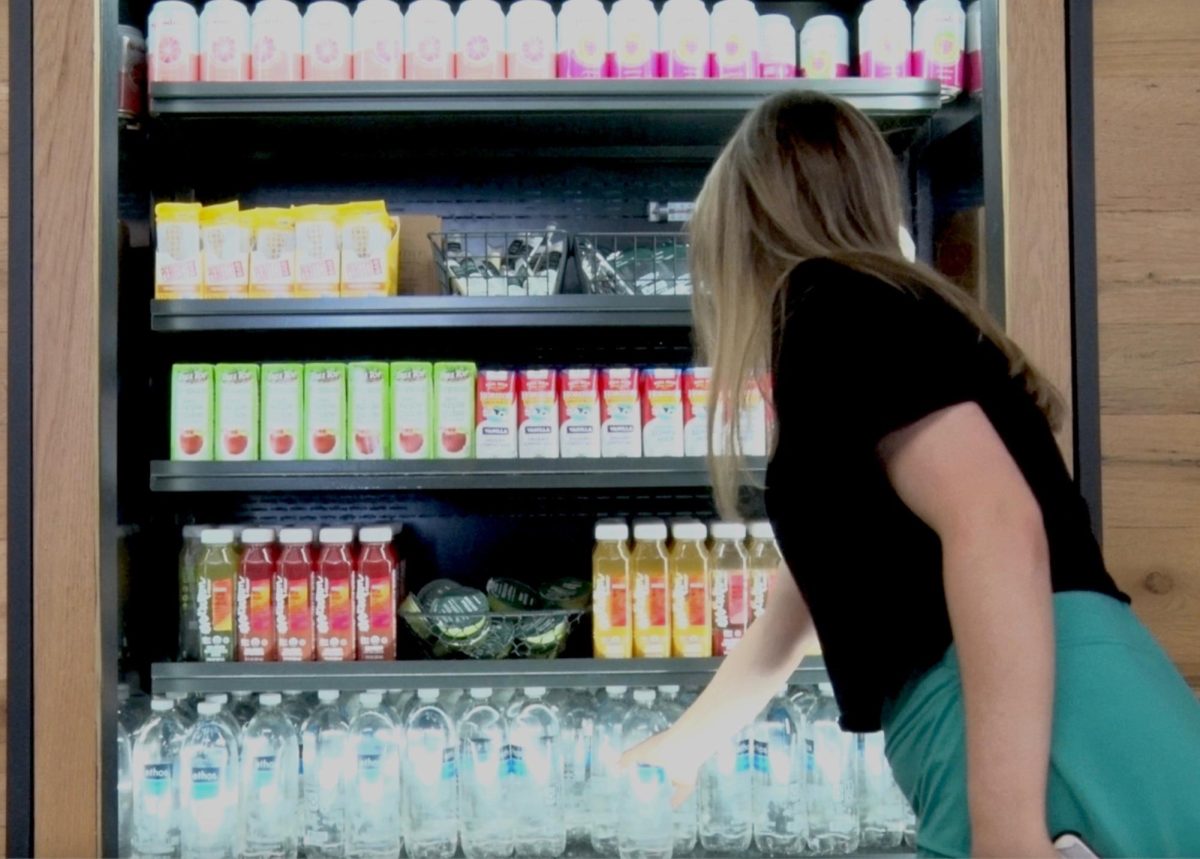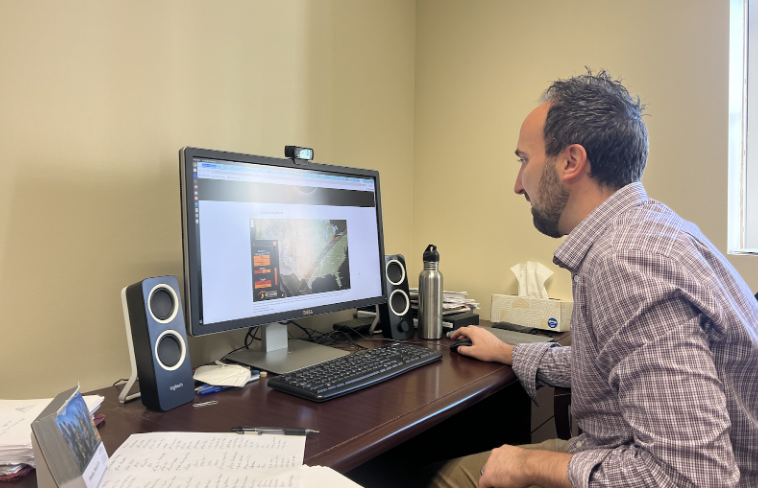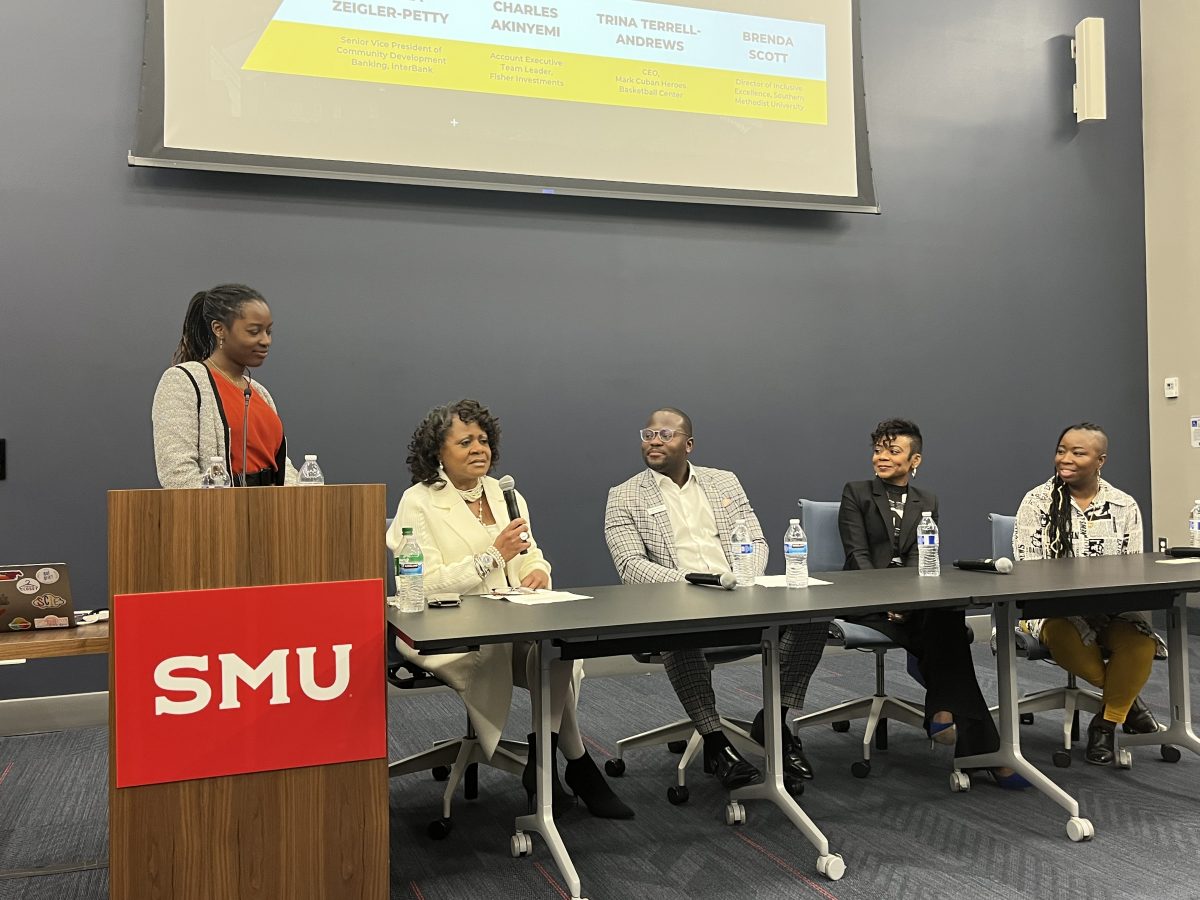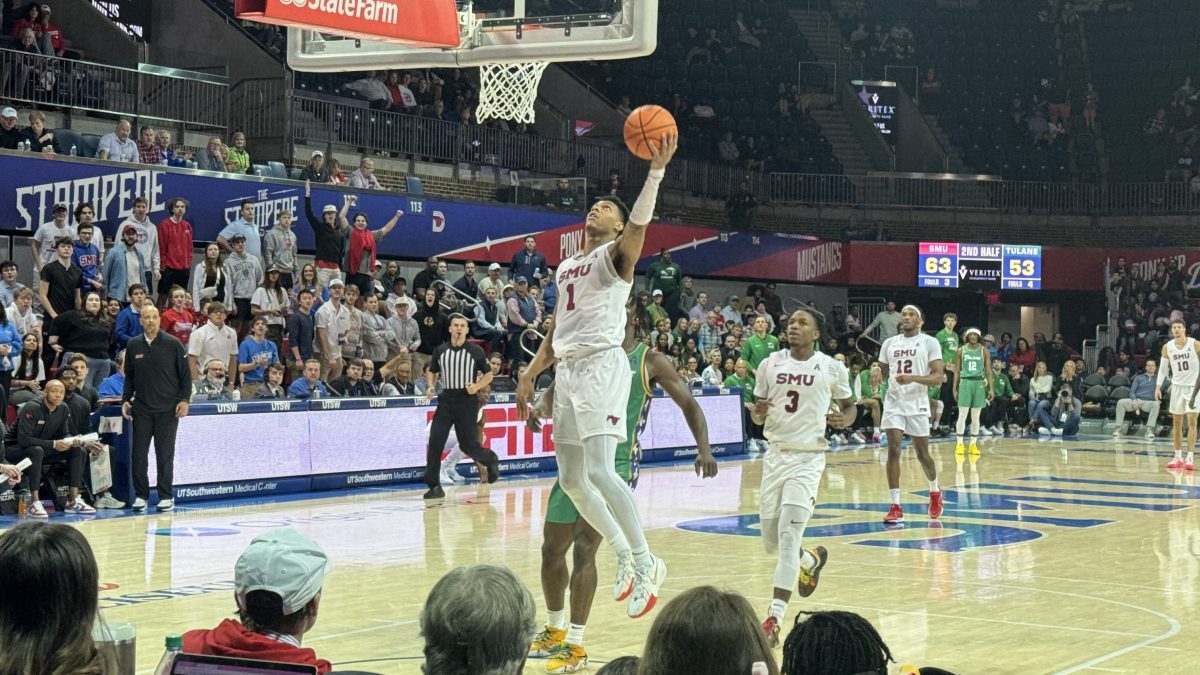Sophomore Kaya Reingold has always been an avid skier. She has made a point to go every year since she was 5 years old, but this winter break she decided to try snowboarding.
“I was at the very top of the mountain for my last run of the day,” Reingold said. “I started going down a black diamond and saw a huge patch of ice.”
She tried to stop but fell backwards and hit her head. She was wearing a helmet, but one concussion increases the risk of getting more. This was her third.
She spent the rest of winter break inside with strict orders to not look at computer screens or bright lights and to not be around loud noises. With nothing else to do but stare at the wall, she downloaded a meditation app called Headspace.
“I was meditating every day, every hour,” Reingold said.
Meditation is used to relieve stress, and apps are making it more accessible to college students.
“Absolutely, students should meditate,” Josh Liteky, a meditation teacher from Dallas Transcendental Meditation Center, said. “Being a student is more stressful than ever. They need a way to relieve stress while being most productive for school demands.”
Liteky recommends meditating 15-20 minutes twice a day to relieve stress. With students’ busy schedules, it can be hard to fit in time to finish all their school work, let alone time to travel somewhere for guided meditation. Now, they don’t have to.
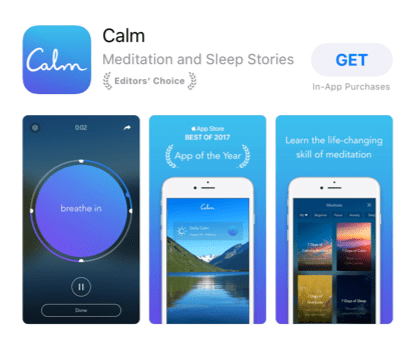
“Meditation can be hard, I think, and time consuming,” Reingold said. “But the app makes it a lot easier to break into.”
For a generation that is never without their phones, apps offer meditation anytime, anywhere. A search for ‘meditation’ or ‘mindfulness’ in the iPhone App Store will yield hundreds of results. The highest rated app is Headspace, with Calm and Simple Habit Meditation coming in at second and third.
Some meditation apps are free, and some are paid subscriptions, but the apps all promise the same basic thing: the benefits of meditation on the go.
Professor of World Religions and Spirituality Ruben L.F. Habito from SMU Perkins School of Theology highly recommends that students at SMU meditate, saying meditation helps the overall health of body and mind. He said that meditation reduces the stress of work or studying, peer pressure, and enables people to live more at ease with themselves. But, Habito doesn’t think meditating alone is best.
“I strongly recommend joining a group that meditates together,” Habito said.
A 2017 study by Carnegie Melon used a mindfulness app to reduce the body’s reaction to biological stress. It studied 144 adults who used a meditation app for a 20-minute session for 14 days. It measured blood pressure, which was 20 percent lower, and cortisol levels, which were 50 percent lower after meditating.
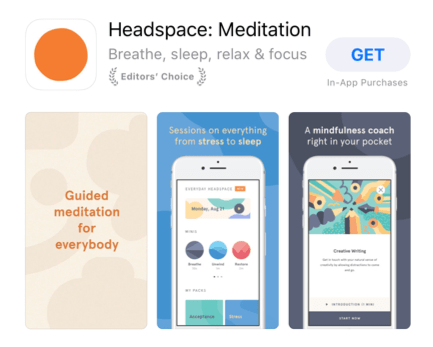
Meditation might not be for everyone, though; freshman Hannah Waldron has trouble getting out of her own head.
“While meditating is said to calm your nerves, for me it does the opposite,” Waldron said. “I can’t clear my mind and I begin thinking about everything. It stresses me out.”
It’s no secret that students are under more stress than ever. Anxiety disorders are the most common mental health problem among college students, according to a survey done by the Association for University and College Counseling Center Directors.
Sophomore Emily Fowler knows this all too well. She was diagnosed with anxiety earlier this year and had a negative reaction to the anxiety medication she was put on.
“I think our society too easily prescribes medication to solve problems,” Fowler said. “Meditation is a way to try to handle anxiety without being on medication, and I think it is healthier and more effective.”
I can totally tell a difference after I use the app,” Fowler said. “I can use it any time I need to, which makes the practice more effective because I specifically use meditation when I feel anxious or overwhelmed.”
She usually uses the app when she wakes up, after her last class of the day, and before she falls asleep for the night. Fowler also said that she would rather use a meditation app than go somewhere to meditate.
“I think it wouldn’t be as effective to meditate with strangers in a class around me,” Fowler said. “I’d be too distracted. I would rather use the app by myself in my own bed.”
Kaya Reingold found that mediation was alleviating her headaches from her concussion. In addition to the headaches, her concussion also brought anxiety because of the school work she was missing. The app helped her relieve this anxiety. Now that she’s back to full health, she still uses the app to de-stress.
“I try to use it every day before bed or at least when I get up in the morning,” Reingold said. “I still find it really helpful to bring down anxiety after a long day.”








